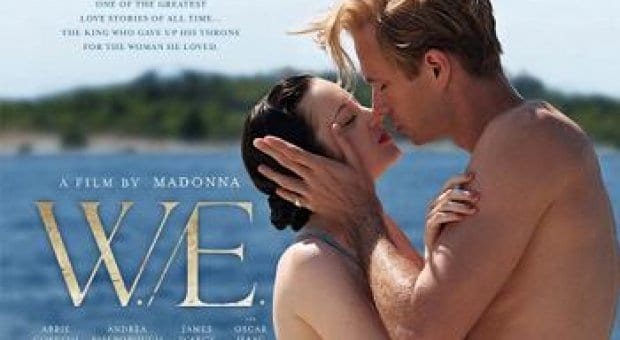In one of the most agonizing yearnings in pop cultural history, Madonna has a lengthy, tortured need to conquer cinema. It isn’t enough that she has all those bestselling albums, a zany private life and that Sex book. Like a number of pop singers before her – including David Bowie, Mick Jagger, Sting and, arguably most successfully, Cher – the Material Girl still wants to be taken seriously on the big screen.
This has led to some pretty hammy performances, in particular the disastrous Next Best Thing, in which she starred with her gay buddy Rupert Everett. She also starred in a misguided remake of Swept Away, directed by her former husband, filmmaker Guy Ritchie. Some blamed her for giving him his first bomb. She did get a Golden Globe Award for her turn in Evita, but the Hollywood Foreign Press Association, which runs the Globes, aren’t taken very seriously within the industry. So Madonna turned her hand to directing, first turning out the cryptic, ambitious 2008 Filth and Wisdom. It garnered mixed reviews.
Here, at last, is WE, her second feature directorial effort. Perhaps low expectations helped, but I was tremendously moved as I watched this latest film. The story is inspired by the scandalous romance of King Edward VIII and the love of his life, American divorcée Wallis Simpson. Edward abdicated the British throne in 1936 so he could marry Simpson. Madonna follows the life of New Yorker Abbie Cornish (Wally Winthrop), who, in 1998, becomes obsessed with the story. Madonna artfully cuts between the ’98 scenes of Cornish, who struggles with a philandering husband, and the ’30s scenes of Edward (James D’Arcy) and Simpson (Andrea Riseborough), as they find themselves mired in the toxic scandal.
I cringed when I heard that Madge was making a film about British royalty. I always thought her move to London was part of some extreme insecurity on her part. Like Conrad Black – whose wet dream came true when he became a British Lord with Maggie Thatcher by his side – Madonna seemed to think that by adopting British style she would get in touch with her inner classy person. That TV interview she gave a couple of years after arriving in Britain, in which she spoke with that cheeseball, phoney British accent, was about as embarrassing as it gets.
But here’s the good news: WE clearly indicates that Madonna has gained a considerable amount of confidence as a filmmaker. She has drawn beautiful performances from a very able cast. One of the principal charges against her is that she prefers form over content: give Madge a video in which to star and she’ll do it. From “Material Girl” to “Hung Up,” she has created, arguably, some of the greatest music videos ever. But critics have charged that she has no real depth, which is why her performances often feel so flat.
Finally, Madonna has proven those critics wrong. WE is by no means a perfect film, but it maintained my interest from start to finish and is well worth seeing.
It saddens me that Madonna’s reputation is so massive that it will almost certainly eclipse WE’s reception, both for critics and audiences alike. People remember her for reprimanding a fan for offering the wrong species of flower or for asking Toronto International Film Festival volunteers to face the wall so they wouldn’t look at her when she arrived in Toronto with WE in September. The accuracy of the latter story is shaky, at best. Most people don’t think of WE when they think of Madonna; they tend to think of TMZ.
And that’s too bad, because this is a genuine, heartfelt, beautiful film, full of surprising performances, brilliant art direction, stunning photography, a lush musical score and some honest, wrenching emotional sequences. Madonna genuinely deserves praise for WE – as well as another round in the director’s chair. I look forward to her next film.

 Why you can trust Xtra
Why you can trust Xtra


